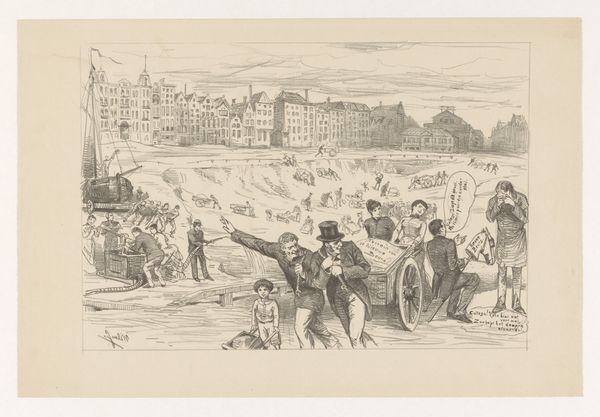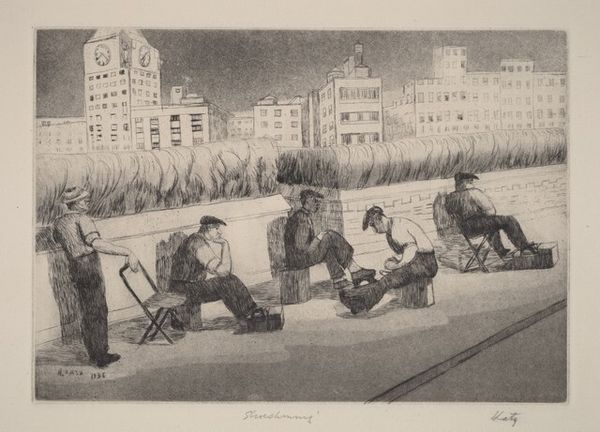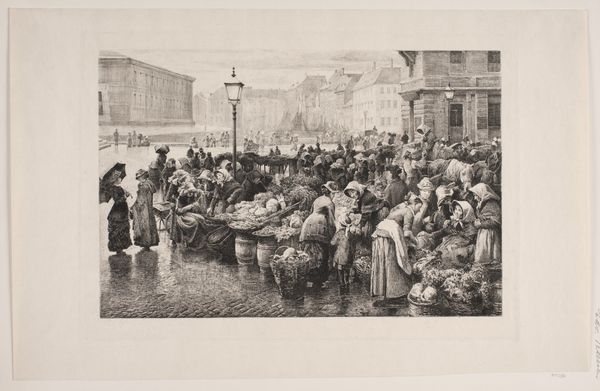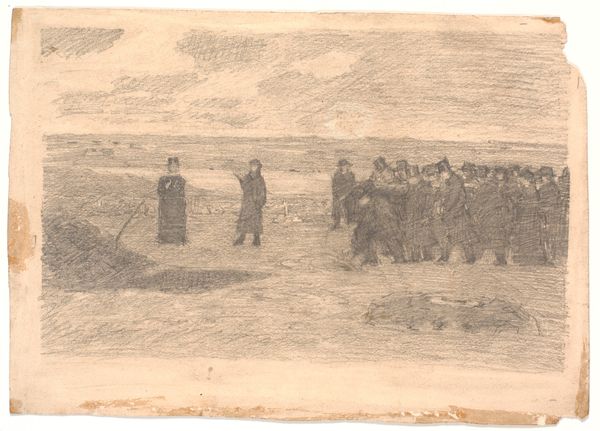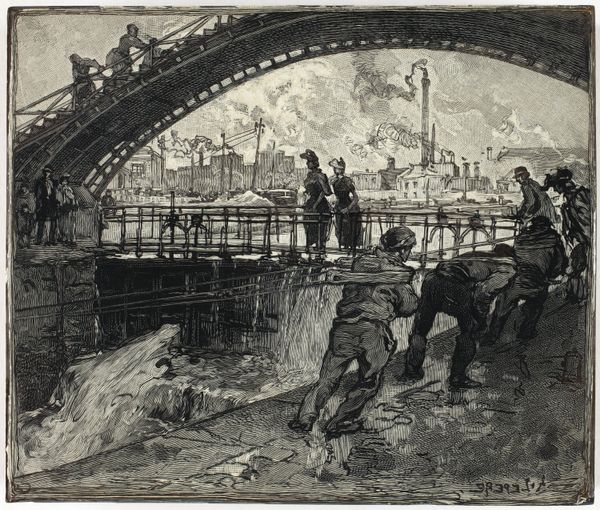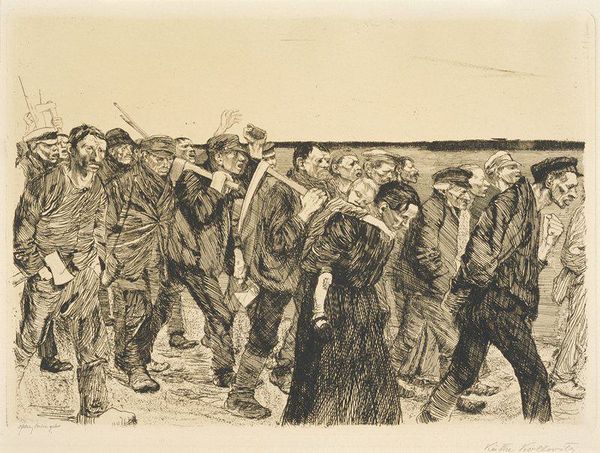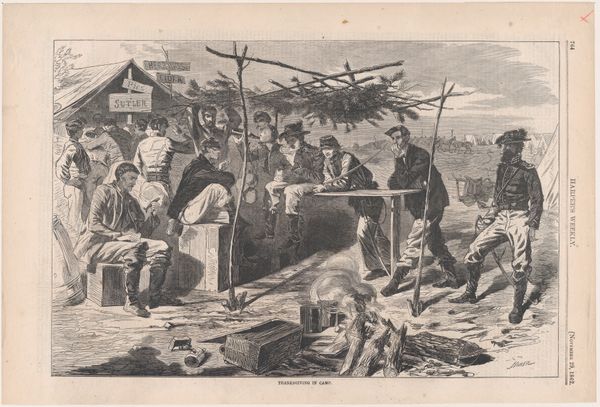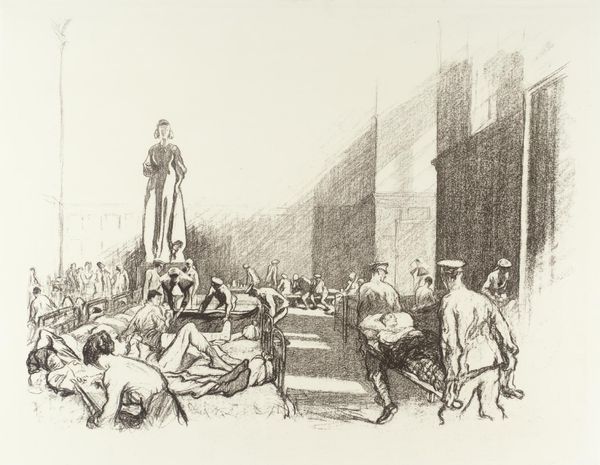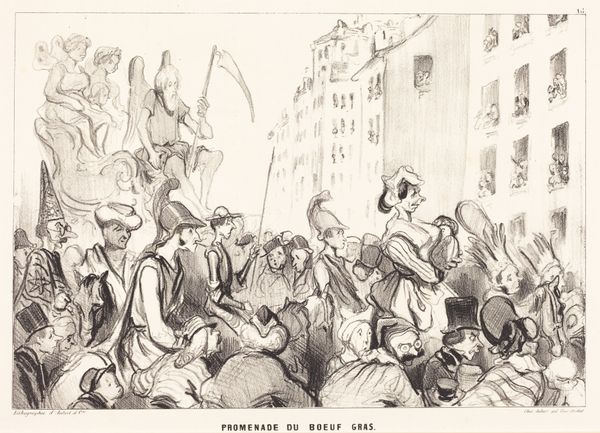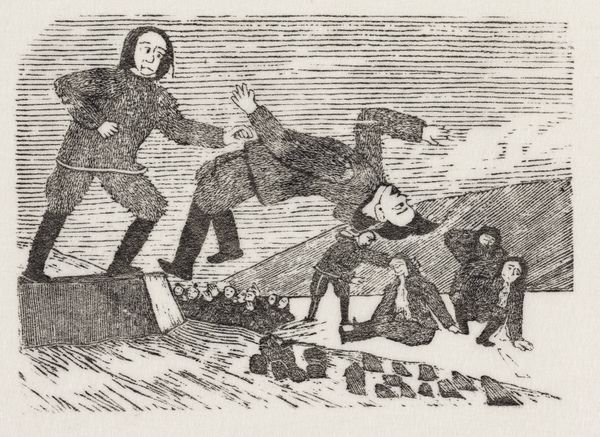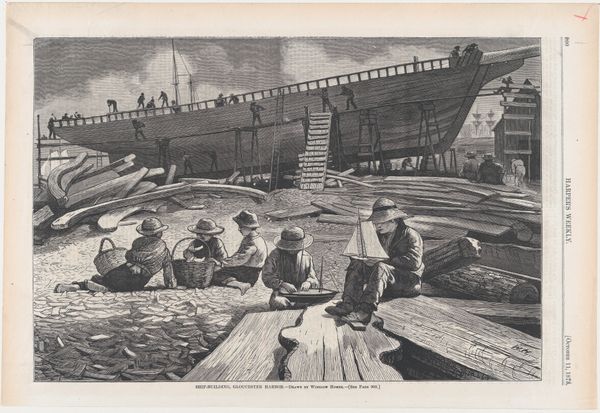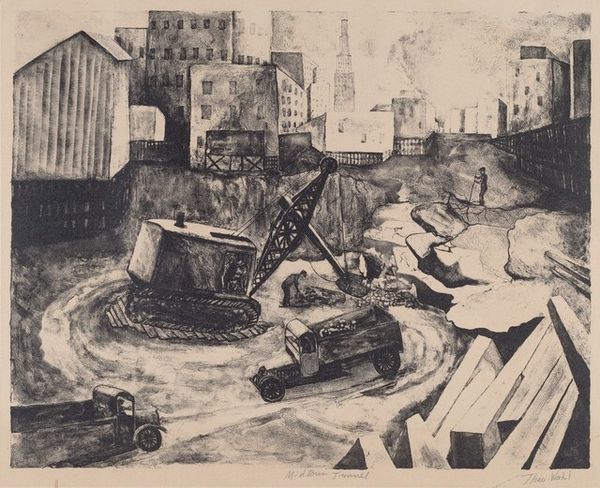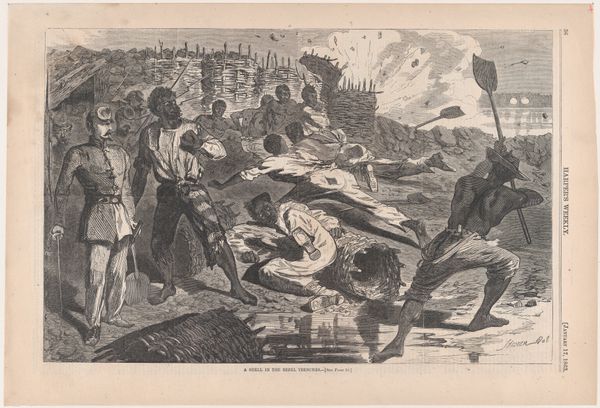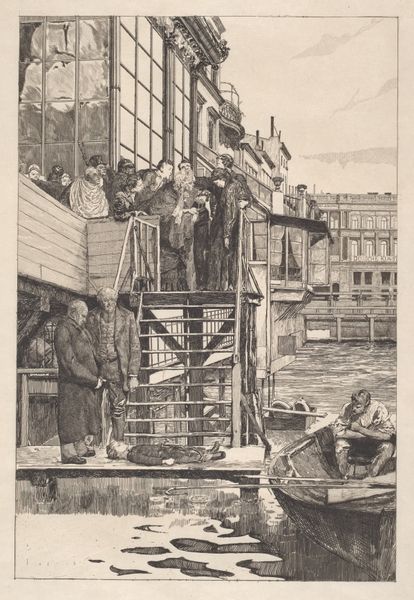
The Islington Borough Council have employed women on this strenuous task 1941
0:00
0:00
drawing, print, etching, ink, pen
#
drawing
#
narrative-art
# print
#
pen sketch
#
etching
#
pencil sketch
#
landscape
#
figuration
#
social-realism
#
ink
#
group-portraits
#
pen
#
cityscape
#
modernism
#
realism
Copyright: Public domain
Editor: This is "The Islington Borough Council have employed women on this strenuous task," a 1941 print by Ethel Léontine Gabain. It's striking how she portrays these women performing what looks like arduous manual labor. There’s almost a heroic quality, but also a realness. What do you see in this piece? Curator: What immediately grabs me is how Gabain documents a shift in the workforce during wartime. Consider the title: it’s not just about women working; it's about a council *employing* them, acknowledging a structural change. The 'strenuous task' isn't romanticized; it's presented matter-of-factly, yet there’s dignity in their collective effort. How do you think Gabain negotiates the line between documentation and potential idealization, given the context of wartime propaganda? Editor: That’s interesting. I hadn’t considered the propaganda angle. It does feel celebratory, in a way. But I think the detail in their faces, the evident strain, undercuts any purely propagandistic reading. They seem very… real. Curator: Exactly. Gabain doesn't shy away from portraying the physical demands on these women, challenging traditional gender roles. Think about the visual language; the tools they wield, the physical exertion—it’s a deliberate act of rewriting women's place in the public sphere, particularly within a socio-political context demanding their contribution. What message does that send, visually and politically, during the war? Editor: It’s a powerful visual statement about women's capabilities and resilience during that time. This image goes beyond simple documentation; it makes an argument for the essential role these women played. Curator: And it invites us to reflect on the intersections of gender, class, and labor, particularly when conventional societal structures are disrupted. What might this say about women's potential for economic independence after the war? Editor: It definitely challenges our preconceived notions about labor, and especially women's labor. I think it forces us to rethink our understanding of social roles and economic power. Thanks, that gave me a lot to consider. Curator: It's a work that continues to resonate, especially as we reconsider historical narratives and representation. It certainly shifts my perspective on women’s contributions and societal structures during that time.
Comments
No comments
Be the first to comment and join the conversation on the ultimate creative platform.
